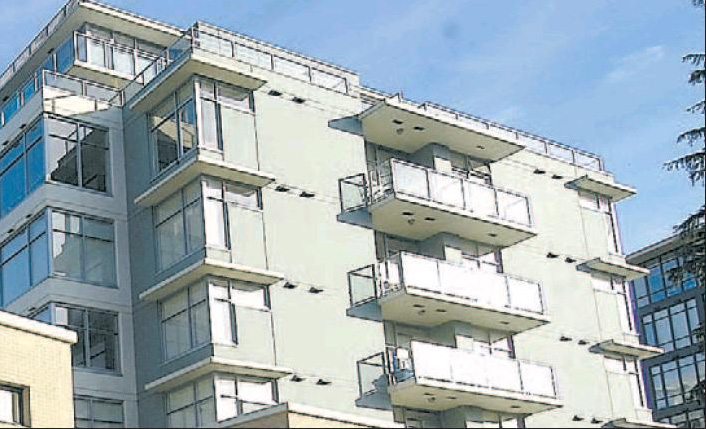Affordability will continue to drop — RBC
Province

Condos are the most affordable class of housing. NICK PROCAYLO FILE PHOTO – THE PROVINCE
OTTAWA — Housing affordability has started to deteriorate in Canada, according to a report Friday, and the situation will likely worsen through the end of the year as interest rates rise.
Housing affordability eroded across all four housing types in the most recent quarter, said the latest housing affordability report from RBC Economics.
“After posting broad-based improvements at the end of 2006, nationwide housing affordability deteriorated in the most recent quarter, with price gains being the main factor,” said Derek Holt, assistant chief economist at RBC. “This erosion occurred despite the strongest gain in median before-tax household incomes in about a year-and-a-half.”
The RBC affordability report measures the proportion of pre-tax household income needed to service the costs of owning a home. The most affordable housing class remains the standard condo, requiring 27.5 per cent of income. A standard townhouse is next, at 31.5 per cent, followed by a detached bungalow, at 39 per cent. A standard two-storey home remains the least affordable housing type, at 44 per cent.
Vancouver, at 68 per cent, tops Canada’s largest cities on RBC’s affordability measure for a detached bungalow. Others: Toronto (43 per cent), Calgary (40 per cent), Montreal (35.4 per cent) and Ottawa (30.5 per cent).
Across the country, Alberta, Saskatchewan, Manitoba and Quebec witnessed a broad-based affordability deterioration, said the report. Standard two-storey homes in B.C. and the Atlantic region saw a slight improvement, while bungalows in Ontario bucked the nationwide deterioration, it added.
Saskatchewan experienced the sharpest pace of deterioration, especially in Saskatoon.
According to RBC, the positive correlation between sales-to-listings ratios and price gains means that most cities remain in net seller’s territory, with sales growth outstripping listings.
Some housing markets — particularly cities in central Canada and B.C. — where both new listings and sales are tapering off simultaneously, are likely to experience a controlled cooling, the report said.
While mortgage rates were flat in the first quarter of 2007, the substantial climb in rates in the second quarter is likely to continue, with more hikes expected to come as the year unfolds, the report predicted.
RBC forecasts short-term, prime-linked borrowing products will rise by a full percentage point by early next year, with hikes likely starting this summer. Long-term mortgages are likely to rise by about 75 basis points from today’s levels next year, and that could mean a more significant deterioration in affordability later this year, the report added.

